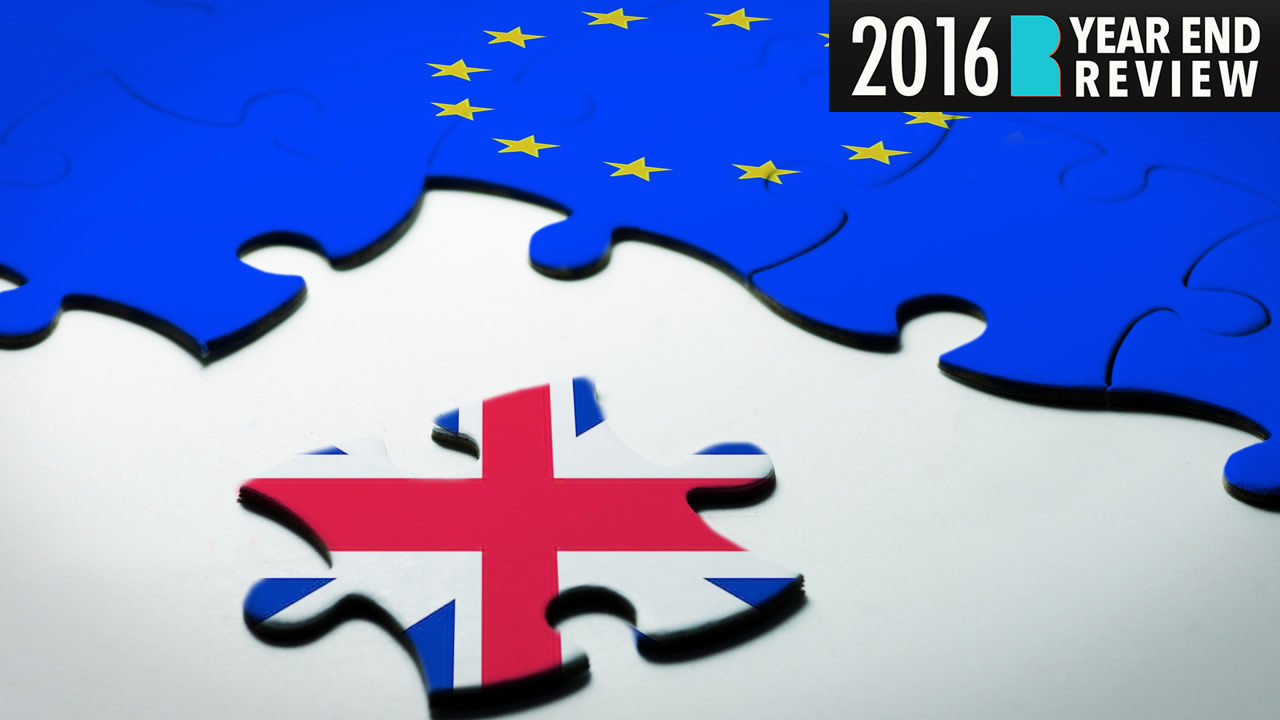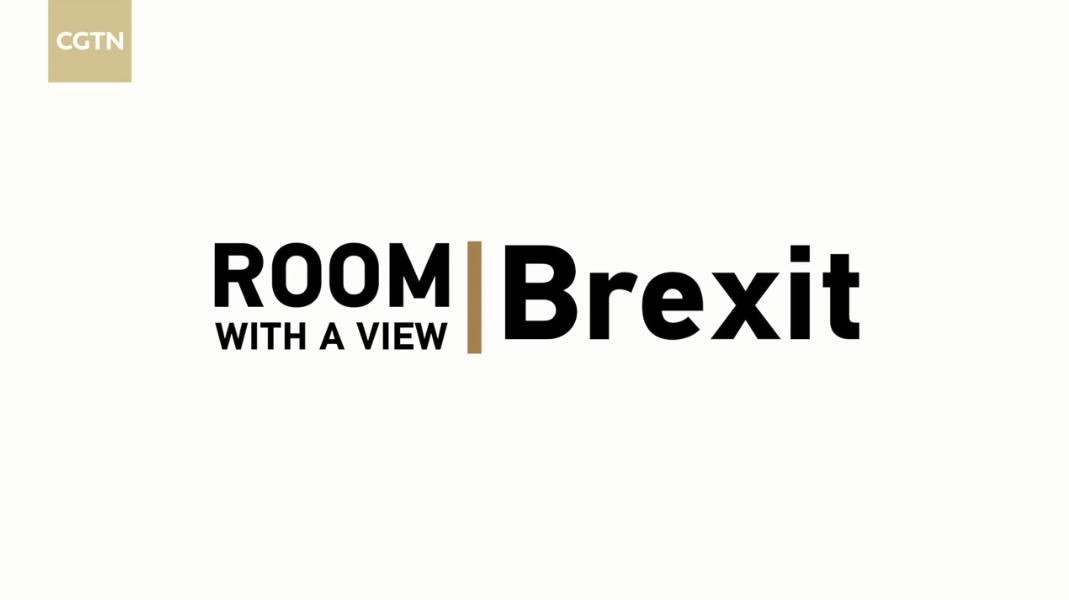-Britain votes to leave the European Union, triggering political and market turmoil
-David Cameron stands down as prime minister, replaced by Theresa May
-British pound drops to 30-year lows, but economy resilient in the months after the vote
The end of 2016 was dominated by the election of Donald Trump as US president, but similar campaign themes were evident in the middle of the year when Britain’s decision to exit the European Union sent shockwaves across the globe.
On June 23, 17.4 million Britons voted for Brexit. The 16.1 million who ticked the Remain box - and interested parties around the world - were left aghast. Markets dived, the British pound slumped to a 30-year low and a dire future for the world’s fifth-largest economy was predicted.
This was the first time a member of the 28-state European bloc had decided to leave the economic - and increasingly political - partnership.
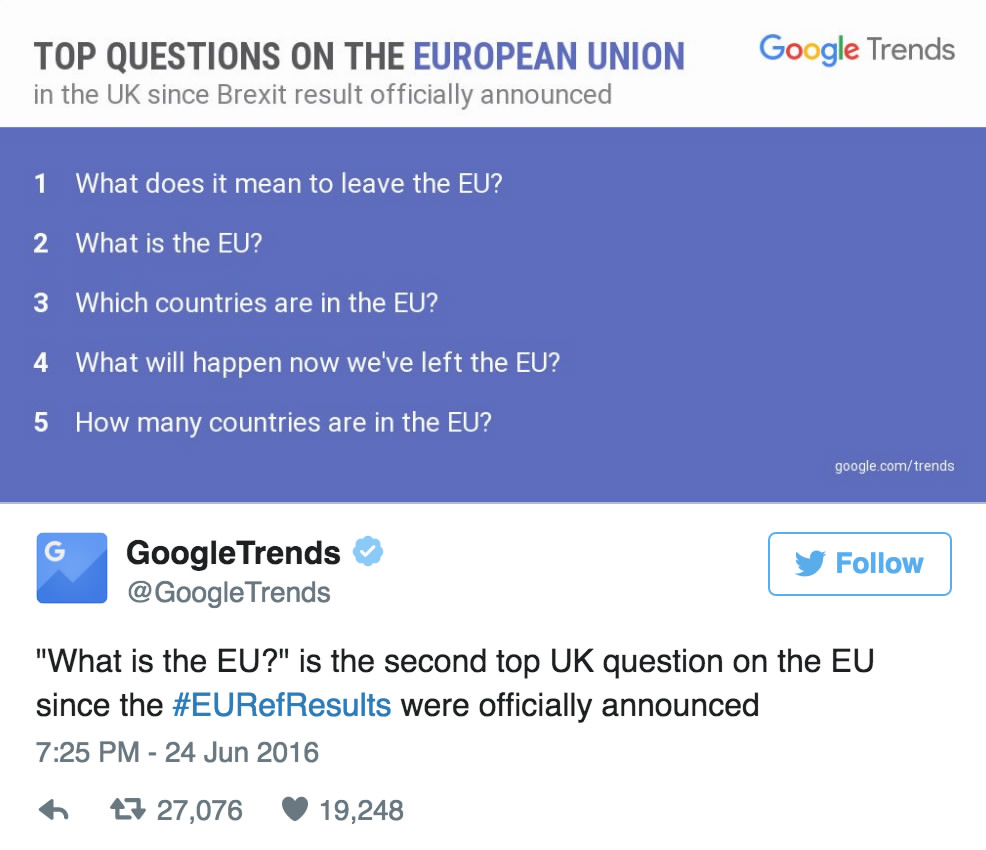
Did Britons know what they were voting for? Many frantically googled fundamental questions about the EU in the hours after voting to leave it. /GoogleTrends Twitter Photo
Did Britons know what they were voting for? Many frantically googled fundamental questions about the EU in the hours after voting to leave it. /GoogleTrends Twitter Photo
The shock result exposed chasms in the make-up of the UK. England and Wales voted to leave. But London wanted to remain. The old voted to leave, the young to stay. And the most consequential split may have occurred in Scotland and Northern Ireland, which both voted to remain. Scotland could soon hold another independence referendum. Northern Ireland’s border with Republic of Ireland - which remains an EU member - is likely to be a source of controversy in the years to come.
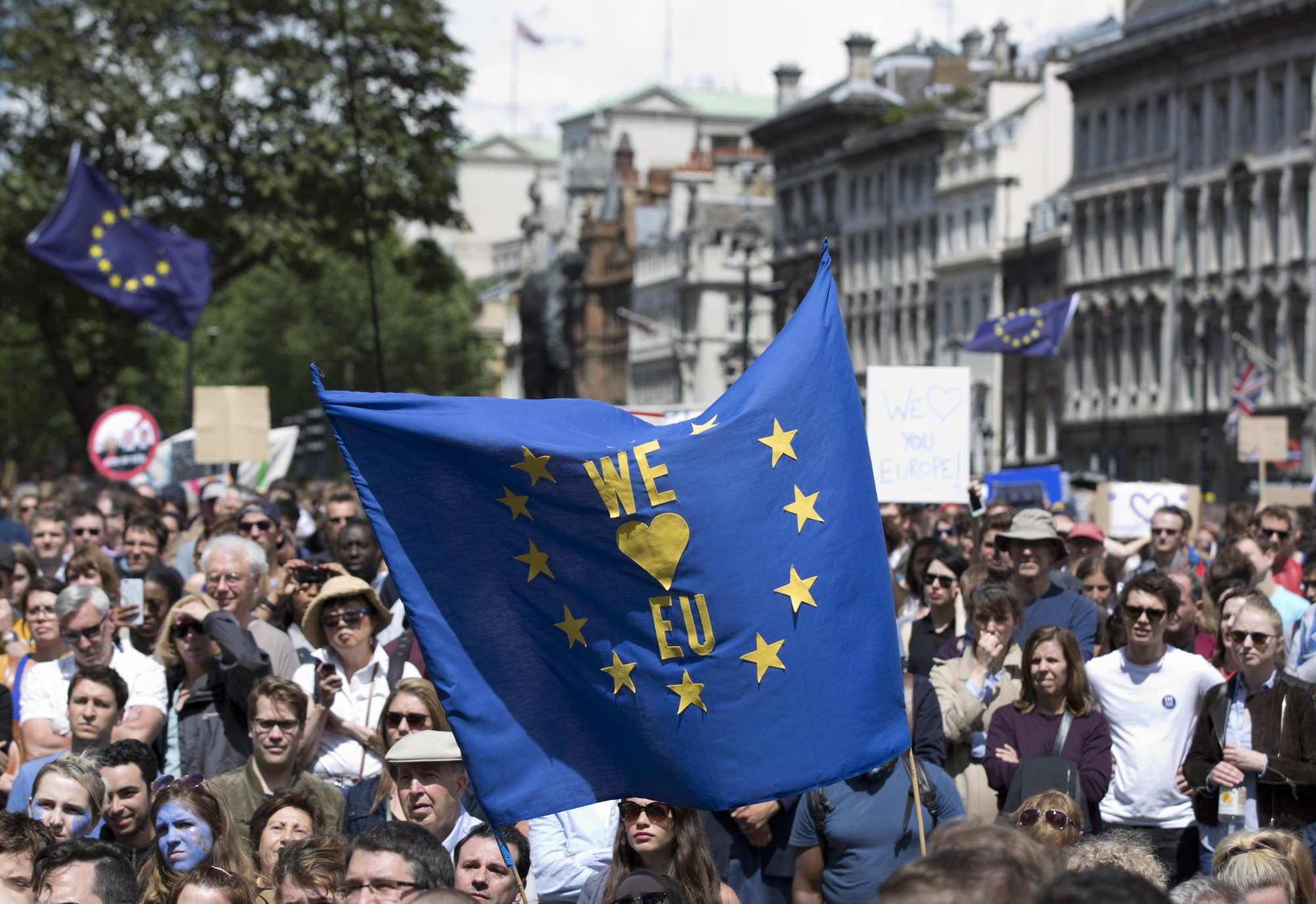
Protestors march from Park Lane to Parliament during the anti-Brexit rally in London on July 2, 2016. Getty Images /CFP Photo
Protestors march from Park Lane to Parliament during the anti-Brexit rally in London on July 2, 2016. Getty Images /CFP Photo
On June 24 it became clear that this divided country would have a new leader. Prime Minister David Cameron, the man who promised the referendum in the lead-up to the 2015 general election, resigned. His replacement, Theresa May - a quiet backer of the Remain campaign - has since promised to trigger Article 50, the mechanism by which a country can leave the EU, by March 2017.
But as debate rages over what Britain should look like after leaving, the form that Brexit will take remains unclear. Following a High Court ruling in November, the largely pro-Remain British parliament will have a say on the timing - and possibly the nature - of Britain’s exit.

A red bus bought by Greenpeace and covered in messages of protest against the vote to leave the EU in the Vote Leave campaign in London on July 18, 2016. /CFP Photo
A red bus bought by Greenpeace and covered in messages of protest against the vote to leave the EU in the Vote Leave campaign in London on July 18, 2016. /CFP Photo
The consequences for the remainder of the EU could also be stark. Not only will the bloc be weakened, the British vote highlighted the growth of anti-elite, populist and nationalist sentiment.
The union began life in the wake of World War Two as a common trading market, binding powers together in an effort to blunt the forces of nationalism that had torn the continent apart.
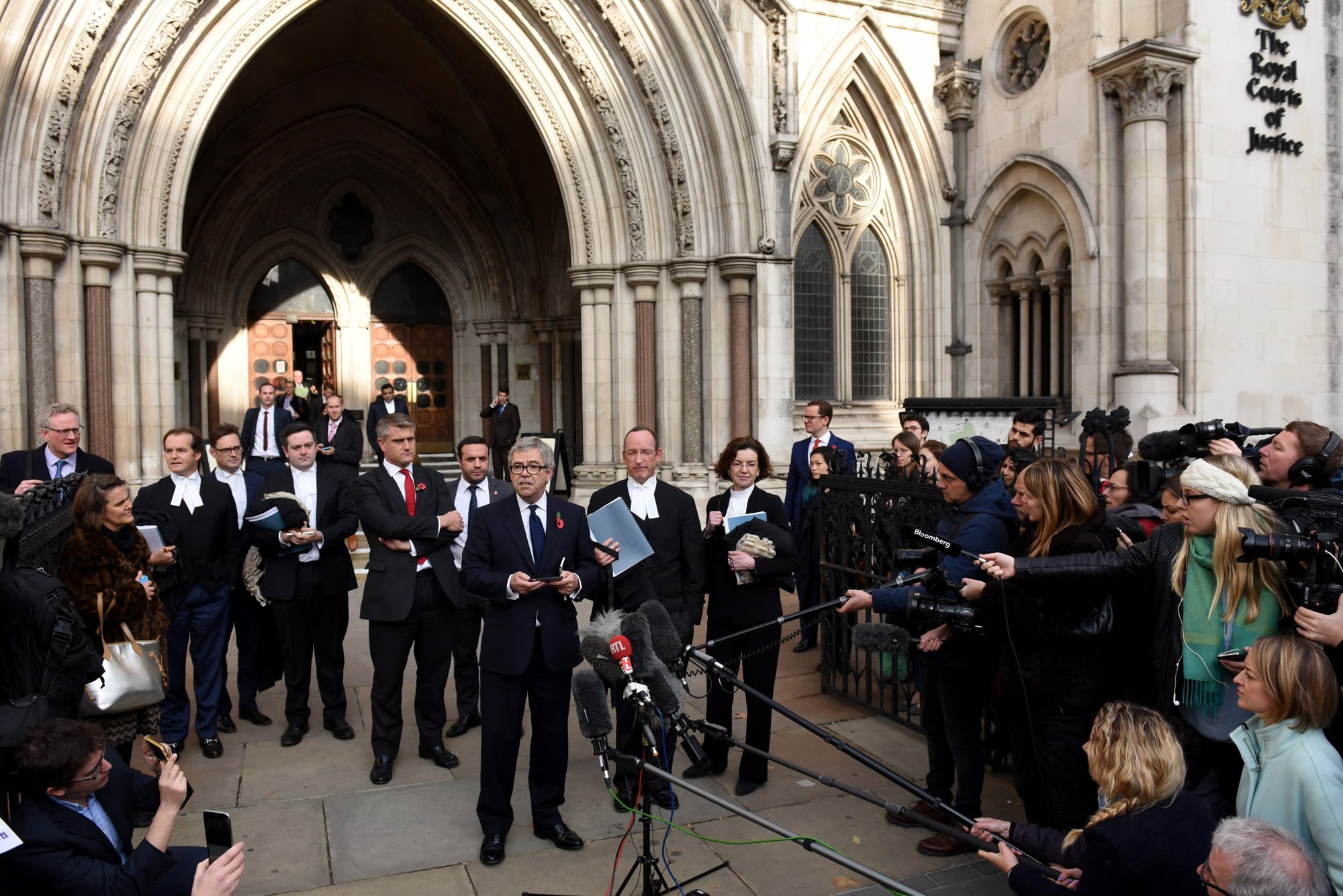
Lawyer for Deir dos Santos, David Green (2L), speaks outside London’s Royal Courts of Justice on November 3, 2016 after the High Court decides that the British prime minister cannot trigger Brexit without the approval of MPs. /Getty Images/CFP Photo
Lawyer for Deir dos Santos, David Green (2L), speaks outside London’s Royal Courts of Justice on November 3, 2016 after the High Court decides that the British prime minister cannot trigger Brexit without the approval of MPs. /Getty Images/CFP Photo
It has expanded steadily over the years, attracting new members and growing into the world’s largest trading zone. But Brexit was a fresh hit to an EU already struggling under the weight of a stagnant economy, high unemployment, the migrant crisis, debt woes and conflict in Ukraine.
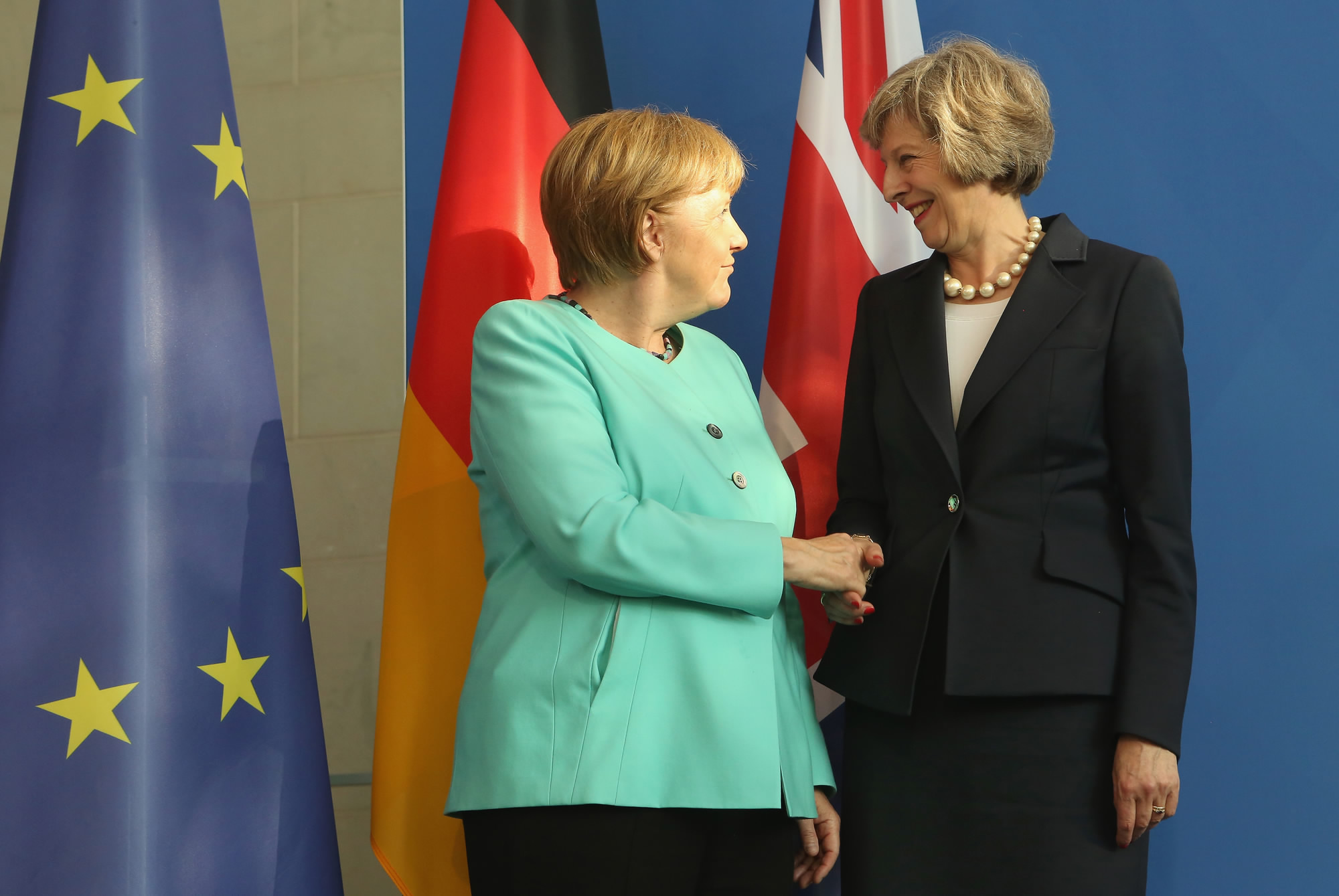
The UK Prime Minister Theresa May (R) shakes hands as she leaves a press conference with German Chancellor Angela Merkel (L) on July 20, 2016 in Berlin, Germany. The two leaders discussed their upcoming cooperation together as well as the UK’s divorce from the EU. /Getty Images/CFP Photo
The UK Prime Minister Theresa May (R) shakes hands as she leaves a press conference with German Chancellor Angela Merkel (L) on July 20, 2016 in Berlin, Germany. The two leaders discussed their upcoming cooperation together as well as the UK’s divorce from the EU. /Getty Images/CFP Photo
It remains to be seen whether Britain’s historic decision on June 23 will be a prelude to the further unraveling of the EU. But the success of nationalistic, populist campaigns in 2016 suggests that it may not be the final seismic vote in Europe. German federal elections and a Dutch general election will be held in 2017. And France will go to the polls to vote for a new president next year. Could far-right leader Marine Le Pen, the leader of the National Front, be France’s next head of state?
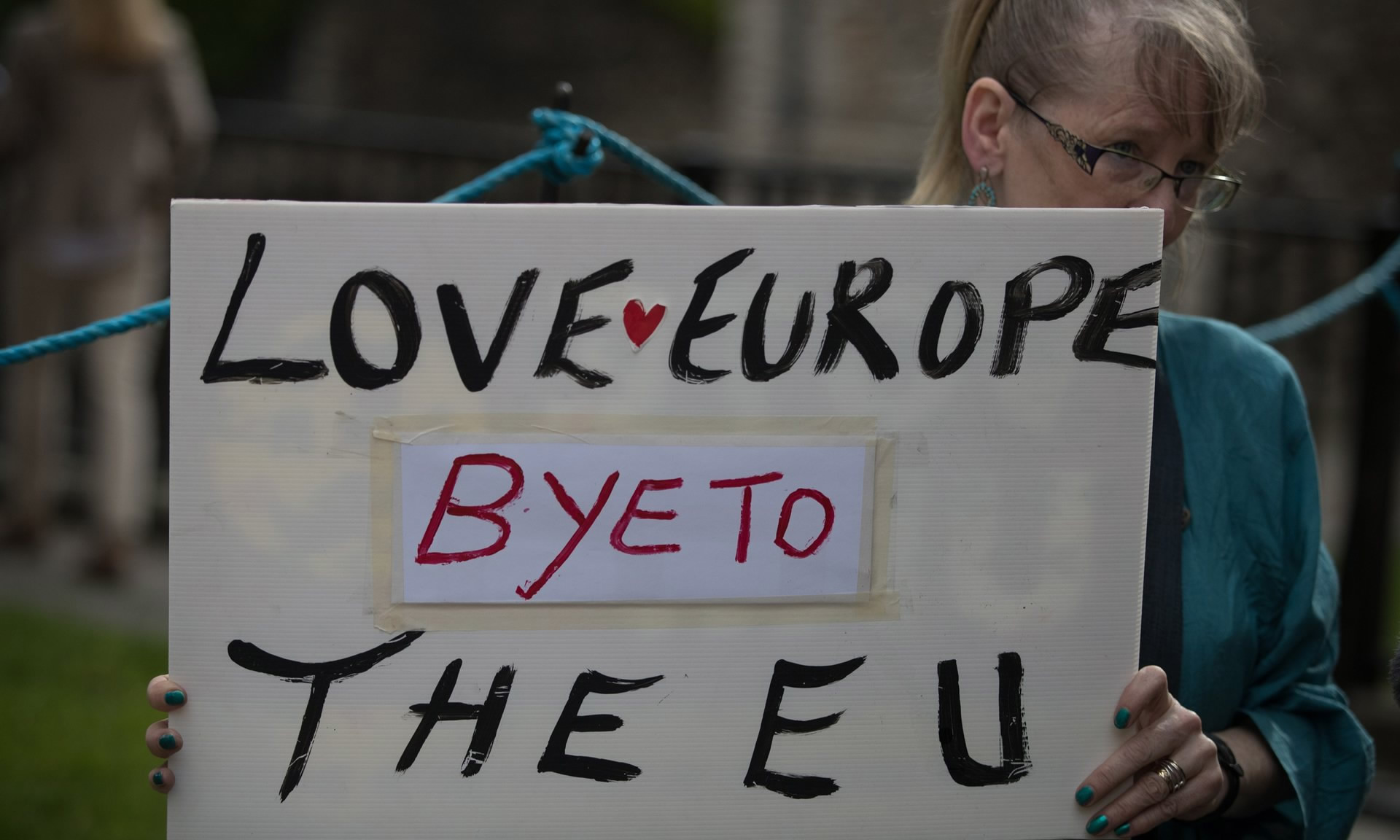
A woman holds up a poster saying farewell to the EU following Britain’s vote to leave. /Getty Images/CFP Photo
A woman holds up a poster saying farewell to the EU following Britain’s vote to leave. /Getty Images/CFP Photo
Questions for 2017
-Britain is expected to officially declare its intention to leave the EU by March 2017, but what will Brexit look like? And will the economy remain strong as the realities of Brexit hit?
-The referendum exposed splits across the country: will pre-EU Scotland hold another independence vote? And how will the Ireland border question be settled?
-Will the sentiment evident in the Brexit referendum be replicated in 2017’s key European elections in Germany, France and the Netherlands?
-How will Brexit change Britain’s relationship with China? Will it remain a destination for Chinese investment, students and shoppers?
(Written by Yao Nian; Edited by John Goodrich and Marcus Ryder; Video edited by Zhou Jinxi; and Room with a View produced by Tian Yi)

